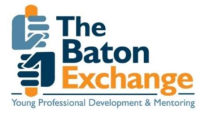Our Training Curriculum Philosophy
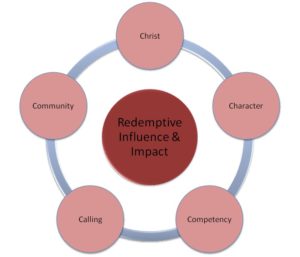 Learning happens in various ways, with experience often being the best teacher (though not a necessary one.) 1) Our ideal training would be that our trainees learn by doing, in real-time, in the context closest to what they will experience when they exit the training. And then that they teach what they have learned. 2) Our understanding of the process of gaining influence for sharing the gospel and impacting culture, especially in a relational context and in workplace life, is mostly stepwise. Without first competency and character, sharing about Christ is difficult.
Learning happens in various ways, with experience often being the best teacher (though not a necessary one.) 1) Our ideal training would be that our trainees learn by doing, in real-time, in the context closest to what they will experience when they exit the training. And then that they teach what they have learned. 2) Our understanding of the process of gaining influence for sharing the gospel and impacting culture, especially in a relational context and in workplace life, is mostly stepwise. Without first competency and character, sharing about Christ is difficult.
Baton Exchange curriculum consists of a five part bundle for optimum professional and spiritual development: Competence, Character, Christ (Change Leadership), Calling, and Community. It is delivered through a variety of contact points and is customizable: take one or all to meet your needs! Benefit from a Life2Life spiritual-vocational mentor. Trainees can jump into the 12 month cycle at anytime. (13-month cycle for Cohort Leader Incubator starts in June.) Christian marketplace leaders play a central role in your development experiences. We use what we believe to be an outcomes-based, holistic approach to leadership development for Christian emerging young leaders.
Self-Assessments for Self-Awareness
Understanding oneself is important in knowing how to manage yourself, work with team members and grow spiritually, emotionally, relationally and professionally. We administer a series of tests at the front end of the process that aids us, you, and your mentor in your development. We bring in seasoned career and life coaches to help us process the results of your assessments and the implications for relating to others on team. You can also learn more about vocational stewardship through the our competency workshops and change agent leadership modules.
Training Options
Trainees can engage in a variety of ways. Delivery methods include: Cohort Leader Incubator. Discussion groups. Guest leaders. Life2Life Mentoring. Career & life coaches. Volunteering. Retreats. One-on-one leader interviews. Customized project. Mentors. Online Learning (available December 2015.) Cohort uses all methods. Customized picks and chooses. Mentoring only does Life2Life mentoring and can opt to engage e-learning or learning experiences.
(Link to Download Brochure Here)
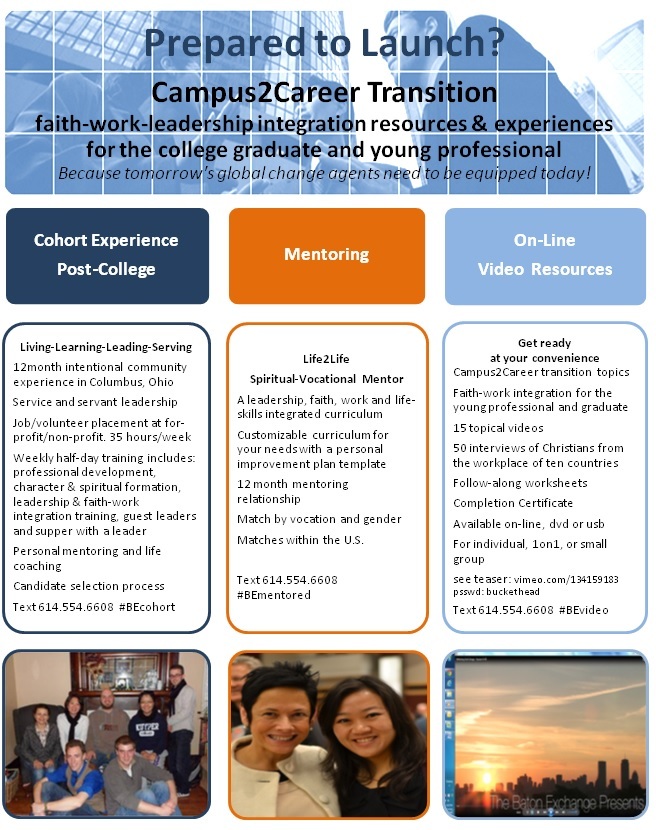
Five Point Development Strategy
[expand title=”Click & Expand to read more. . .”]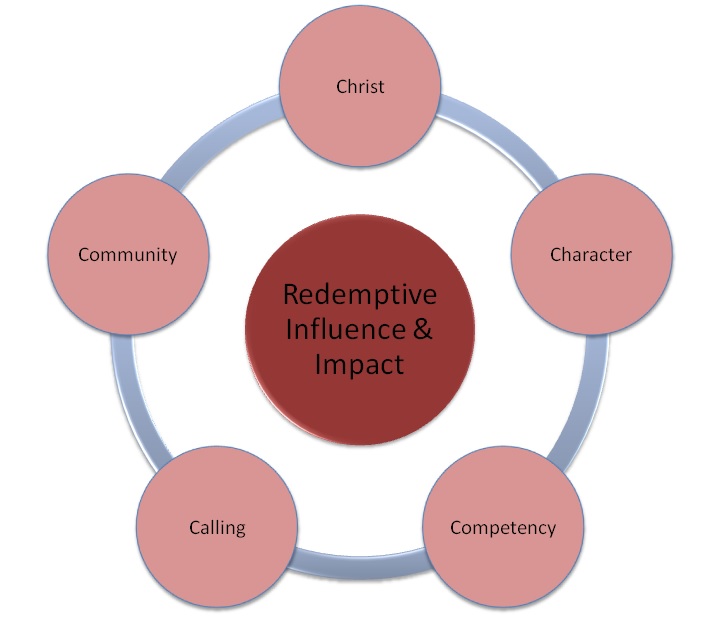
Christ
If you want to learn the connection between your work/career and your faith, how to share your faith appropriately in the workplace, how to deal with ethical workplace dilemmas in a God honoring way, or want to explore how to be strategic in making a difference for good, for God, in the world around you, then these modules may be for you. Learn more about Change Agent Leadership Modules.
Character
When we surveyed employers and young professionals about development needs, the number one area of need was related to character issues. We have selected 15 principles crucial for effectively managing oneself and others. Developing these character traits will help you succeed at work and in life. We use curriculum developed by LaRed Business Network, which has been used in close to 90 countries, “from the prisons to the palace.” From Fortune 500 Executives and civic leaders to small business owners and coaches, you will interact with numerous leaders over the course of the training year in informal, small group setting discussions about what they have learned about leadership. Learn more about Character and Leader Roundtables.
Competency
Soft skills are typically not taught in college but are essential for career and life success. Employers note many of these soft skills as essential for doing well on the job. An MIT study revealed that 85% of career competency is tied to soft/people skills, and 15% to technical skills. Our career competency training focuses on the 85%. Those starting with good soft skills will advance at a faster rate than their peers who lack soft skills. Learn more about Career Competency Workshops.
Calling
Understanding oneself and how God has made you is helpful in discovering calling, as well as knowing how to manage yourself, work with team members and grow spiritually, emotionally, relationally and professionally. We administer a series of assessments and training on discovering God’s will and calling at the front end of the process that aids us, you, and your mentor in your development. We bring in seasoned career and life coaches to help us process the results of your assessments and the implications for relating to others on team. Prayer staff are also available to help you explore how God might be calling you.
Community
Receive the training in the context of a living, learning, loving, community. Being part of a community is essential to being a redemptive influence. Also volunteer in the local community, serving the inner city poor.
Change Agent Leadership Modules
[expand title=”Click & Expand to read more. . .”]If you want to learn the connection between your work/career and your faith, vocational stewardship, how to share your faith appropriately in the workplace, how to deal with ethical workplace dilemmas in a God honoring way, or want to explore how to be strategic in making a difference for good, for God, in the world around you, then these modules may be for you.
Learn core concepts for engaging the workplace and culture as change agents for Christ. This part of our training focuses on developing a biblical worldview, or Kingdom perspective, as it relates to the role of a Christian in the marketplace and as a positive difference maker in society. A Kingdom perspective must include a theology of work, which should inform our character and drive for competence.
Change Leadership Discussions are 90-minute sessions at which main ideas from the module are presented. The group frequently breaks into interactive small groups, often with guest leaders, to further explore concepts, implications, and applications for daily work life. Minimal reading is required beforehand (5-10 pages per week.) These discussions are held in an informal, home setting, and are almost always preceded with supper with the guest leader. Module sessions are typically on Wednesdays, 6-8:30 p.m. Participants discuss the topic and how/if it applies to daily life. A one page reflection journal entry is due about every two weeks.
Because this track is module-based, and offered in a program cycle (12 months), participants can jump into the training at any time. These modules may be the only formal biblically based career and leadership development training a trainee may receive, as secular universities do not offer comparative and most churches don’t either. It’s a unique opportunity to shape perspectives before getting firmly engrained in one’s career and subsequent lifestyle choices.
Modules
Christian Marketplace Ethics. Trainees should understand: 1) the three divine characteristics that have a direct bearing on ethical decision-making: holiness, justice and love; 2) the false exits for ethical decision-making, which are Dual Morality, Law and Agency; 3) nuances and implications of honesty & deception, concealment & disclosure; 4) practical tools for handling dilemmas in the workplace or classroom concerning sexual issues, employee issues, customer interactions and a general ethical dilemma decision-making tool. The story of Daniel is used as a case study.
Prayer Foundations. Gain an understanding of the importance of prayer in sharing about Jesus with others and the role it can play in transforming culture on a community and city level. Learn simple principles for an effective prayer initiative and get out of your comfort zone via a prayer walk.
Sharing Christ at Work. Learn how to take sharing about Jesus out of the religious box and weave it into your life at work in appropriate, timely ways. Practical principles are reinforced through in-session role playing.
Theology of Work and Calling. Calling: Trainees should understand: 1) Primary Calling 2) Secondary Calling; 3) Be equipped to discover their individual secondary calling and grasp a better understanding of themselves. Theology of Work: To develop an understanding and foundation of key principles from the bible on God’s viewpoint on work as opposed to the world’s view of work. Gaining an understanding God’s perspective on work and calling has proven to be liberating and encouraging for many of our trainees.
Mechanics of Change: Becoming a Transformation Catalyst. Learn how to give back and make a difference strategically. Those taking this module will gain an understanding of: cultural/societal Transformation Basics; Why God directs us to be involved in transformation; Spiritual Traps, Authority & Spiritual Warfare associated with transformation; The importance of Problem Solvers & Networks; Micro Cultural Transformation: Community Transformation and development; Transformation Metrics and Indicators; 10 Transformation Strategies; and Macro Cultural Transformation principles. Local and national-level content experts will be joining in on the sessions throughout the module.
Seven Mountain Transformation. Trainees will gain an understanding of the seven different cultural spheres or mountains of influence (Arts & Entertainment, Business, Education, Government, Media, Family, and Religion) and how strategies are integrated across the spheres to catalyze cultural and societal change at micro and macro levels. We will be “drilling down” into the different spheres, with the help of guest leaders from most of those spheres. They will be equipped to identify indicators of cultural and social change initiatives happening around them.
Transformation Projects & Cases. Historic and contemporary case studies (some via movies) will be reviewed to highlight the principles from Modules 5 and 6. A compare contrast will be conducted to reveal how the principles can be used in cultural for redeemed and unredeemed purposes.
[/expand]
Character and Leadership Roundtables
[expand title=”Click & Expand to read more. . .”]Chatacter Formation Peer Roundtables
When we surveyed employers and young professionals about development needs, the number one area of need was related to character issues. We have selected 15 principles crucial for effectively managing oneself and others. Developing these character traits will help you succeed at work and in life. We use curriculum developed by LaRed Business Network, which has been used in close to 90 countries, “from the prisons to the palace.” The 15 character & leadership principles we focus on are:
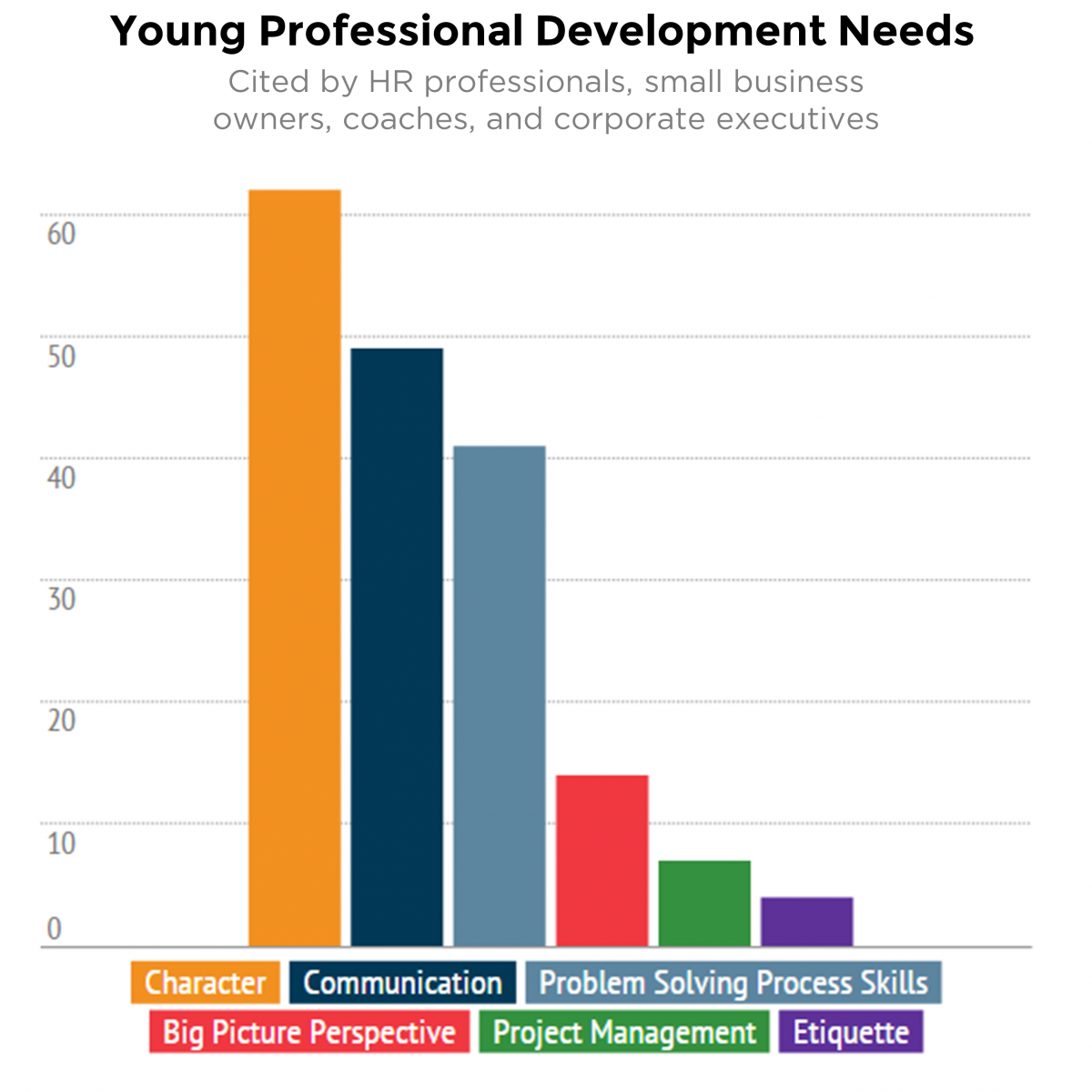 Sowing & Reaping
Sowing & Reaping- Developing People
- Forgiveness
- Understanding People
- Generosity
- Motives
- Honesty
- Hard Work
- Restraint (of your tongue)
- Humility
- Ambition
- Responsibility
- Proper Thinking
- Dependability
- Correction
- Attitude
Leader Roundtables
From Fortune 500 Executives and civic leaders to small business owners and coaches, you will interact with numerous leaders over the course of the training year in informal, small group setting discussions about what they have learned about leadership. Common questions we ask during these one hour sessions are:
What have you learned about leadership that you wish you would have known in your 20s?
What have you been learning about integrating your faith, work, and leadership?
What are some of the biggest hindrances to a young adult in advancing into leadership roles?
What have been the difficult parts of your career path and what have you learned from them?
Trainees have ample opportunity to dialogue with leaders during this time.
Summer Leadership Camp
[expand title=”Click & Expand to read more. . .”]During the first week of June, participants can experience a sampling of the leadership training we offer throughout the year. This camp is designed primarily for Christian college students, recent grads, and young professionals. The camp is held in Columbus, Ohio. Participants will have opportunity to interact with a number of guest leaders on the topics of integrating faith, career, leadership and life purpose. You will also do some volunteer service work in the inner city as well as participate in fun in outdoor activities.
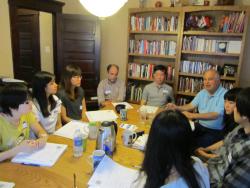
Fast Facts
First week of June, Columbus, Ohio
Interactive training on Faith & Work, Leadership, Professional Development
Small group interactions with world-class leaders
Fun outdoor leadership activities
Volunteer work in inner city
Life coaches and personal assessments
Training Objectives
Participants will leave the training camp having had a lot of fun while being exposed to some core concepts about: leadership; integrating faith and work; being a cultural change agent; understanding the ingredients needed to establish a foundation of influence in the workplace in order to more effectively share the gospel and reflect God’s glory; soft skill competencies and character qualities for being good employees and leaders. A personal assessment and life vision template useful for career and life planning.
 Leader Interactions
Leader Interactions
Interact with high quality marketplace leaders throughout the camp in the trainings, as well as small group evening dinner discussions about principles of faith, work, and leadership.
Leadership Certificate
Those who complete the full training will receive a certificate of completion (The Baton Exchange: Catalyst Leadership Program, Iron Level)
Past Training Sessions
|
|
 Special Activities
Special Activities
Canoe Trip & Hiking
Leadership Focus Field Trip
Zipline Safari at a U.S. Top Ranked zipline
Outdoor Leadership Games
Volunteer work with various inner-city ministries
Past Guest Leaders
 Gary Casale Retired, Director of Sourcing at Chase Bank, where he managed a $12 billion budget; Chief Procurement Officer of Huntington Bancshares; VP Global Operations & Supply Management of ABB, a $20billion global company.
Gary Casale Retired, Director of Sourcing at Chase Bank, where he managed a $12 billion budget; Chief Procurement Officer of Huntington Bancshares; VP Global Operations & Supply Management of ABB, a $20billion global company.
 Max Chau Director of Transmission Services, AEP (retired). As Director, led five managers, 130 engineers, tech support, and support staff, and 200 contract employees, with a projects budget of $600M.
Max Chau Director of Transmission Services, AEP (retired). As Director, led five managers, 130 engineers, tech support, and support staff, and 200 contract employees, with a projects budget of $600M.
 David Foster Retired Senior VP of Automation Services at ABB, a $20billion, global business. Responsible for revenue of $200 million, and 2,000 employees in 35 countries. Yale Aeronautical Engineering. Harvard MBA.
David Foster Retired Senior VP of Automation Services at ABB, a $20billion, global business. Responsible for revenue of $200 million, and 2,000 employees in 35 countries. Yale Aeronautical Engineering. Harvard MBA.
 Rhonda Peterson Owner at RKP Business Advisors, a professional training and coaching firm that helps individuals discover and develop their personal brand.
Rhonda Peterson Owner at RKP Business Advisors, a professional training and coaching firm that helps individuals discover and develop their personal brand.
 Denise Pietzsch Executive Director of Etiquette and Protocol Image Consultants, LLC. She is certified as a Corporate Etiquette and International Protocol Consultant.
Denise Pietzsch Executive Director of Etiquette and Protocol Image Consultants, LLC. She is certified as a Corporate Etiquette and International Protocol Consultant.
 Rick Curnutte CEO, Volunteer Energy, a $400million energy services provider headquartered in Columbus, Ohio.
Rick Curnutte CEO, Volunteer Energy, a $400million energy services provider headquartered in Columbus, Ohio.
Prices
$775 Leadership camp with lodging at guest homes
$595 No lodging
Prices include food, training, materials, and fees for special activities
Part of your fee goes to provide scholarships for an inner city kids camp!
Pay via credit card or check. Credit card payment can be made via PayPal at www.theBatonExchange.org/give.
See Facebook page or contact us about registration deadlines and cancellation policy.
[/expand]
Career Competency Workshops
[expand title=”Click & Expand to read more. . .”] Soft skills are typically not taught in college but are essential for career and life success. Employers note many of these soft skills as essential for doing well on the job. An MIT study revealed that 85% of career competency is tied to soft/people skills, and 15% to technical skills. Our career competency training focuses on the 85%. Those starting with good soft skills will advance at a faster rate than their peers who lack soft skills.
Soft skills are typically not taught in college but are essential for career and life success. Employers note many of these soft skills as essential for doing well on the job. An MIT study revealed that 85% of career competency is tied to soft/people skills, and 15% to technical skills. Our career competency training focuses on the 85%. Those starting with good soft skills will advance at a faster rate than their peers who lack soft skills.
Personal Vision Statement & Time Management
The exercise of creating a Personal Vision Statement can help you clarify a sense of direction, purpose, and prioritization. Implementing your Personal Vision Statement using actionable steps helps you manage your time and bring balance to your life. In this workshop, trainees learn how to create a life vision statement and actually get started working on one.
Investing Forward: A Generosity Journey
Increase your impact footprint! Life is so much more than just about us. When we learn how to invest in others by giving back through our time, talent, and treasure, we can extend the impact we can have in the lives of those around us. We explore strategies for maximizing your impact and a young professional, and making generosity a lifestyle.
Selling Your Idea
Whether you are a leader, a peer on a team, or an employee presenting to your boss, you will inevitably need to encourage, influence, convince or compell- “sell”- someone your idea, service, or product. In this career development workshop you will learn principles of how to prepare people to “buy in” to what you are proposing, build rapport, manage your emotions during the process, create a positive first impression, the basics of selling a proposal, and more.
Building Trust
Tom Peters, world-renowned leadership guru, calls trust the “issue of the decade.” You will consider the definition of trust, establish the economic benefit of trust, explore the four core credibilities upon which trust is built, and identify 13 trust building behaviors for career development. This segment of our career training increases your influence and expands the environment of trust in any group or organizational setting.
 Leadership 101: Myths & Challenges
Leadership 101: Myths & Challenges
The path to leadership begins way earlier than you may believe and it is fraught with challenges and myths. It’s so much more than a title and a paycheck! In this segment of training, you will address the 7 Myths that can negatively impact attitudes about leadership. You will identify the 7 Challenges to leadership and learn how to navigate those learning opportunities when you encounter them. By clearing your path of myths, strengthening your awareness of challenges, and building skillful responses to those challenges, you will stumble less and walk in strength.
 Managing Yourself, Managing Your Emotions
Managing Yourself, Managing Your Emotions
Job skills aren’t enough for young professionals. Life skills are necessary to succeed. You will run into challenges with people and events that trigger a powerful emotional response in you. That’s being human and that’s life. It is how well you handle your response to those events that will make or break your career development potential. You might not be able to control the event. You might not be able to control the outcome. But you can control your response.
Motivate to Self-Direct
As followers, we need motivation to do jobs with a passion. As leaders, we need to know what motivates our employees to lead them to work to their fullest capacity for excellence, as it’s own reward. Motivated employees are empowered, productive, and happy. They move through their career development with purpose. You will learn the science behind human motivation and understand how to use that knowledge to appropriately motivate your followers to be self-directed employees.
 Conflict Resolution
Conflict Resolution
Put more than one human on a project and you probably will see conflict. We all come from different perspectives in our approach to problem solving and task accomplishment. Yet it’s been proven time and again that the multiple perspectives of people on a team, when working together, often will produce the richest and most elegant solution to any problem. As a leader, how do you manage conflict? First, you will understand your natural conflict style and then learn when each of the conflict styles is effective. You also will learn to recognize when differences that cause conflict (as well as robust solutions to problems) are starting to escalate into non-productive discord and how to lead through that by coaching your team to use effective and productive communication skills that allow valid differences to be aired while respecting the value of the other person.
Communication Skills (Oral and PPT)
Regardless of your technical skills, success in an organization requires solid interpersonal skills as well. Communicating is an interactive process not a one-way process. You will learn communicating effectively is your responsibility that involves you as both a sender of the message and a receiver of the other person’s message/response. You will learn active listening techniques and how to recognize the personal needs of the other person. And you will understand the power of the method of communication (the how) is as important as the message itself (the what).
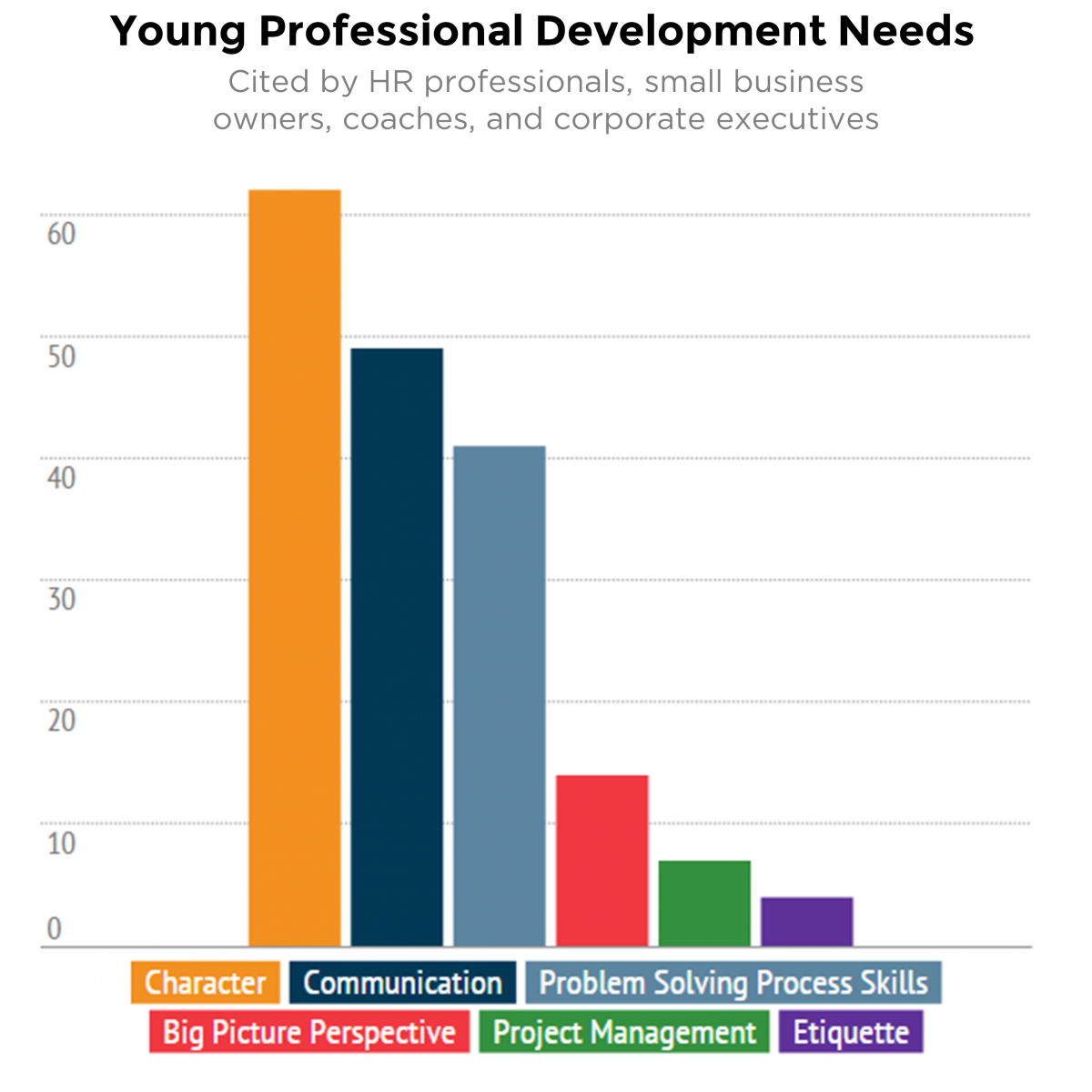 Collaboration Building Skills
Collaboration Building Skills
More can be accomplished through collaboration than through holding to a territorial or “turf” mentality. Young Professionals who learn to accomplish initiatives through collaboration prove to be invaluable to employers and build their own personal brand of someone who gets things done. Trainees will learn basic collaboration building skills in this workshop.
Crucial Conversations
Tough conversations. Not many people enjoy them, but they are essential for building trust, maintaining healthy relationships, facilitating growth, and moving forward. This workshop will provide you with practical skill sets necessary for talking through tough issues. Those who desire to grow in their leadership capacity must learn how to have crucial conversations, or risk limiting their career growth potential.
Situational Leadership
People default to leadership styles that naturally feel comfortable to them. However, different situations require different leadership styles. Good leaders learn know how to discern what type of a leadership style a situation requires, and then apply that style. In this workshop you will learn about different leadership styles and develop a framework for discerning how to match style to situation. Not all situations are created equal, and one leadership style doesn’t fit all situations.
Business Etiquette
Business Etiquette training is integrated throughout the program year into the Summer Leadership Camp, Leadership Retreats, and other activities. Topics typically include: Making introductions; Texting, Emailing & Social Media Etiquette; Dining Etiquette; Dealing with workplace politics; Workplace etiquette; Dressing Appropriately; Networking; The art of setting appointments and follow-up.
Strengthening Your Foundations: Inner Healing for Strong Leadership
Though we can benefit from helping others when we ourselves are in need, to lead effectively and optimally, leaders need to operate from a basic emotional and spiritual foundation that is stable and secure. The saying that “hurt people hurt people” is magnified in a negative, counterproductive impact when someone in influence (as a formal or informal leader) is themselves operating from a broken, unhealed foundation. This broken foundation can be a growth obstacle for ourselves as well. This workshop will unpack an understanding of the principles of inner healing and God’s role in the journey to a strengthened foundation.
Project Management
Whether you are an artist or an architect, a musician or a marketer, you’ll need to know how to manage projects. Employers list project management as a key competency that new employees must master. In this workshop you’ll learn some of the basics of project management and if you are in the Cohort Leader Incubator, have some experiential learning opportunities to put the principles into practice.
Certifications & Schedules
[expand title=”Click & Expand to read more. . .”]Strengthen your resume, build your personal brand, broaden your skill sets, and GROW!Strengthen your resume, build your personal brand, broaden your skill sets, and GROW!
Click here to access our online training.
Customized ExperienceCustomize your leadership development experience by selecting what parts of our program you would like to benefit from. So, for example, if you only want to have a mentor and attend Career Competency Workshops, specify those choices on your enrollment application. You can mention your training on your resume as Baton Leadership Training, but unfortunately we don’t have a Leader Certificate designation for a Customized experience. This option gives the greatest flexibility.
Leader Certificate TracksLeadership Certificate Gold, Silver, or Bronze Level Leadership Certificates for those completing the specified number of training hours. The more time and commitment you have to investing in your growth, the more return and life transformation you can expect to receive. Gold level is required for those pursuing a job assignment as part of their leadership training experience. Any of the Leader Certificate tracks can be taken without a job assignment. Going with a Track option can help give structure and direction to your training goals. You also can note your Leadership Certificate training on your resume. The tracks are intense, but rewarding!
CostIt’s important for trainees to take an active financial role in their own development. $25-$35 per month, if made a priority over other variable expenses, should not pose a significant financial hardship for most people. These rates apply no matter whether you engage one part of the program through the Customized Experience (e.g. mentoring) or take the fullest training options through the Leadership Certificate Tracks (e.g. Gold Level.) So if you have the time and are ambitious, you can get a lot of training for just $25 per month!
Student rate: $25 per month for 12 months, plus materials and activities you choose to participate in. After the 12 months, your agreement renews for six month increments if you haven’t finished and want to continue.
Non-Student rate: $49 per month for 12 months, plus materials and activities you choose to participate in. After the 12 months, your agreement renews for six month increments if you haven’t finished and want to continue. If you are like many graduates, you have a lot of college debt to pay off, costs associated with starting life after college, etc… Been there, done that. We keep the fee low in mind of this, but hope that as you stabilize financially, you will be motivated to give back financially to our non-profit so that those coming after you can receive the training at a deeply subsidized cost as you did.
Q. Sounds impossibly inexpensive. How do you fund your non-profit ministry?
A. Donors and collaborative employers with paid job assignments who desire to see tomorrow’s leaders equipped. The value of the Gold Level training is estimated to be about $18,000. Those who have graduated from our training have already started giving back to invest in those after them.
Note Gold Level Trainees: The monthly fees do not apply to those who are placed in a job assignment through the Gold Level training, as they are paying for their training by accepting a lower pay rate in exchange for their employer paying the training. The exception would be for those who are placed and the employer maintains a regular pay rate, but the trainee is expected to cover their own training costs.
Admission Recommendation Form Trainee Application & Protege Profile
[/expand]